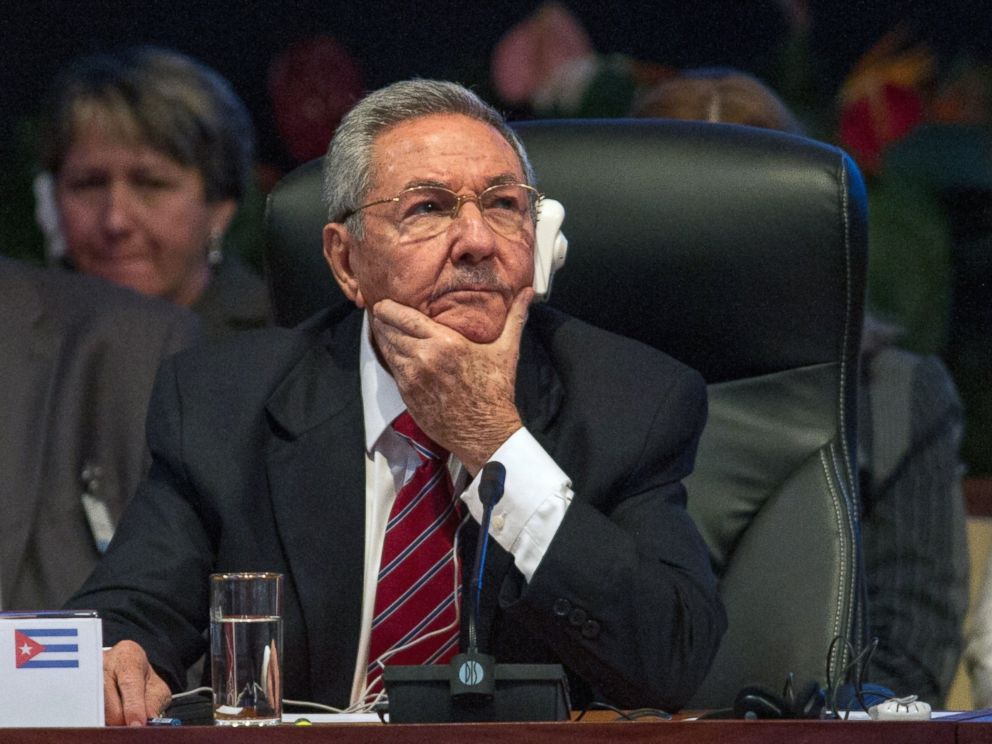Obama Describes ‘Substantive,’ Blunt Conversation With Cuba’s Raul Castro
The president reveals details of historic secret phone call with Raul Castro.
— -- President Obama says his history-making 45-minute phone call with President Raul Castro of Cuba was “substantive” and blunt as it charted a new course for relations between the long-time rival nations.
“I was very insistent with him that we would continue to promote democracy and human rights and speak out forcefully on behalf of the freedom of the people of Cuba,” Obama said, offering exclusive new details of the secret conversation in an interview with ABC “World News Tonight” anchor David Muir.
“I think there's the possibility by engaging, by making sure that the American people are able to travel to Cuba, that the Cuban people are able to see, firsthand, what American values are,” he said. “That is going to spur change among the people of Cuba. And that's our main objective here.”
More of the interview will air on “Good Morning America” at 7 a.m. ET. In the wide-ranging conversation, Muir also asked Obama about Fidel Castro, the 2016 presidential race and the Hollywood hacking scandal.
The call, which took place Tuesday, marked the highest-level contact between the U.S. and Cuba in more than 50 years.
Obama said both he and Castro delivered “lengthy” opening statements on the call before engaging each other in dialogue.
It sealed 18 months of secret negotiations that resulted in the swap of three convicted Cuban agents for a U.S. intelligence informant held more than 20 years in Cuba. Concurrently, Cuba agreed to release jailed American Alan Gross on humanitarian grounds.
The president said Pope Francis played a “very important role” in bringing the leaders together, providing both “moral authority” and practical support for the talks.
“I think this is a good first step,” Obama told Muir of the call and prisoner swap.
The president said he has immediately ordered normalization of diplomatic relations with Cuba and a review of Cuba’s place on a government list of state sponsors of terrorism.
“The key issue here is to use that list based on facts, not based on ideology,” Obama said. ”If in fact Cuba is not aiding or abetting terrorist organizations they shouldn’t be on the list.”

Obama said Castro, who is 83 years old, didn’t signal any change in governing style or policy during the phone call but that generational changes inside Cuba are likely to inspire a future of friendlier relations.
Obama Responds to Criticism from Jeb Bush, Sen. Menendez
The president’s announcement drew criticism from Republicans and Democrats.
Sen. Robert Menendez, D-N.J., chairman of the Senate Foreign Relations Committee, said Obama had “vindicated the brutal behavior of the Cuban government” and would “invite further belligerence” toward human rights and democracy advocates.
Former Florida governor and likely 2016 Republican presidential candidate Jeb Bush accused Obama of rewarding Cuba. “We should instead be fostering efforts that will truly lead to the fair, legitimate democracy that will ultimately prevail in Cuba,” he said in a statement on Facebook.
Obama told Muir his critics’ beliefs are sincere but misplaced.
“We have the same objective,” Obama said. “Question is, how do we achieve it. There’s no indication that by trying to ratchet up more sanctions on top of the almost unequaled sanctions we’ve been maintaining on Cuba over the past 50 years that somehow that is going to loosen the grip of the power of the Castro brothers and the one-party state there.”
The White House has drawn comparisons between the Cuba of 2014 and modern China and Vietnam.
“We have diplomatic relations with a number of countries that don’t abide by democratic practices that we believe in and human rights practices that we believe in and rule of law that we believe in,” Obama said.
“There is evidence in other countries that when we open up and engage with them--that change happens,” he said. “The world has a way of seeping in.”



